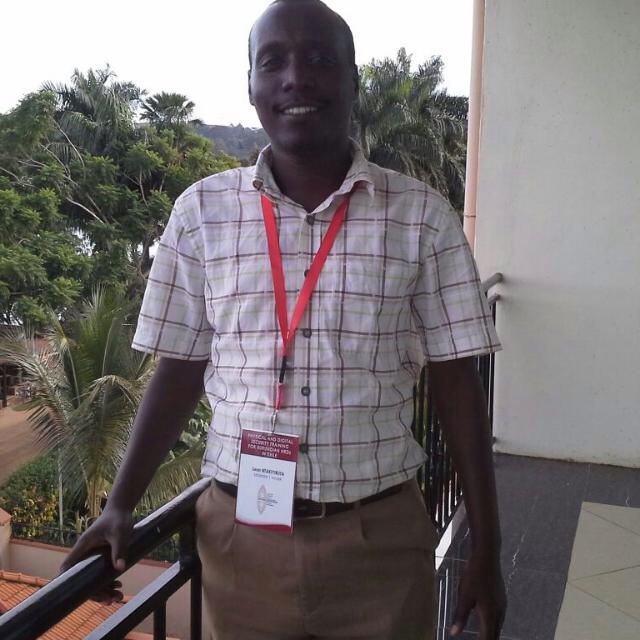As a child, Leon wanted to be a magistrate – whom he saw as agents of justice. Born in 1983 in Burundi’s Southern province, he came of age at a time of great social and political upheaval in the East African country. In 1993 when Leon was barely 10, Burundi was besieged by a civil war that would last for the next 12 years until 2005, characterized by indiscriminate violence and gross human rights abuses in which over 300,000 people are estimated to have died.
“Growing up, there was a lot of injustice and suffering all around me, and I thought that if I studied and became a lawyer and magistrate, I would help hold the bad guys accountable,” he says.
Leon Ntakiyiruta Tweet
Accordingly, Leon studied law for his undergraduate program at the University of Burundi, which he completed as his country was turning the page on the civil war, following the Arusha peace process. But the immediate post-civil war years were not confidence-boosting for those interested in pursuing justice and accountability for rights abuses in the civil war period. The government of the day interfered in the independence of the judiciary to shield its own that were complicit in the preceding violence, and Leon, fresh from university grew disillusioned:
“The judiciary did not strike me as the place to achieve justice anymore. It was in the firm control of the executive, and for me, as someone hungry for justice, I no longer saw my place in there,” he says.
Leon Ntakiyiruta Tweet
So rather than join the judiciary, Leon instead ventured into civil society. He joined Forum pour la Conscience et le Développement (FOCODE), where he pioneered a justice and human rights cluster dedicated to pursuing justice for victims of human rights abuses.
In 2014, when Burundi’s post-civil war President Pierre Nkurunziza decided to manipulate the country’s constitution to run for a third term in contravention of the Arusha Peace Accords, Leon was one of those civil society actors who actively and courageously opposed the move, going as far as undertaking a systematic investigation into the countrywide distribution of guns to the ruling party’s notorious youth militia Imbonerakure, which would later be used to commit gross rights abuses.
“We moved in communes and villages tracking networks of the militias receiving guns, with the intention of exposing them. Along the way however, someone tipped the militia off on our mission, and they started looking for us. Considering their notorious reputation, we knew that we had to leave the country,” he says.
Leon Ntakiyiruta Tweet
In Jan 2016, Leon and his colleagues crossed into Uganda, where, with nowhere else to go, they settled into Nakivale refugee settlement in South-Western Uganda. There, he remained actively engaged on Burundi matters, and was soon invited to work with the Commission of Inquiry on Burundi. Constituted by resolution 33/24 of the UN Human Rights Council in September 2016, the Commission was charged with the responsibility of investigating human rights violations committed in the country since April 2015 and to identify perpetrators, for purposes of pursuing accountability against them and securing justice for victims.
Leon worked closely with the Commission, interviewing tens of Burundian refugees in Uganda, and documenting their accounts of abuse. Although this work was meant to right the abuses back home, it left Leon an exposed and marked man. In August 2016, as Leon returned home in the evening, he was attacked by machete-wielding men, who cut him on his right hand and back, leaving him for dead. Although he was never able to establish who exactly was behind the attack, he says there are no prizes for guessing who was behind it:
“At the time, Nakivale refugee settlement was teeming with Burundian intelligence operatives who had been alerted to the work of the Commission. So, because I was responsible for identifying people to give testimonies to the Commission about the violations committed by (Burundian) government agents back home, I was a legitimate target for attack,” he says.
Leon Ntakiyiruta Tweet
Following the attack, Leon was transferred to Mbarara referral hospital for treatment, with support from DefendDefenders. Following his recovery, DefendDefenders further supported Leon to undertake English language classes to be able to go about his human rights mobilization work more effectively, and to pursue another program in Project Management at the Uganda Management Institute, both of which he says equipped him to better document and report on human rights work.
“DefendDefenders also trained me and others in digital security, advocacy, monitoring development and research, which improved my skillset. It is that kind of capacity building that enabled me to be promoted at my place of work. From a human rights monitor, I was promoted to position of project manager and later to the position of Program Manager at Association Burundaise pour la Protection des Droits Humains, where I had found work,” he says.
Leon Ntakiyiruta Tweet
In January 2023, Leon and his family were relocated to Canada under the UNHCR program, where he currently leaves. He appeals to HRDs everywhere to not give up:
“The journey might be long but eventually, justice wins. On my part, I will always be grateful to organisations like DefendDefenders which supported that difficult part of my journey, including through difficult periods like COVID19. It is because of such compassionate gestures like DefendDefenders’ that we are able to survive to contribute towards improving the rights situation for many others,” he says.
Leon Ntakiyiruta Tweet

